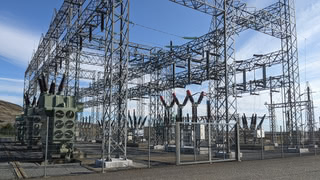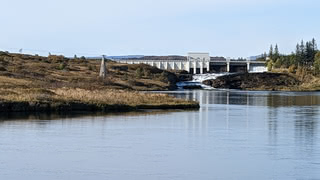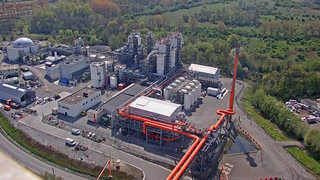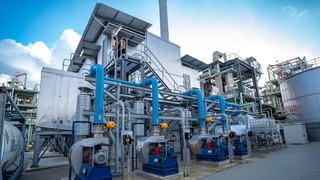How Iceland sold the same Green Electricity twice
European renewable energy certificate led to double counting of the same electricity from Iceland. Certificate exports have now been suspended. But the problem is not restricted to Iceland.
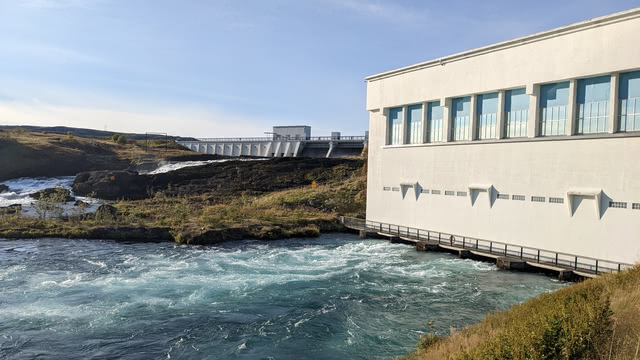
Iceland is in a rather unique situation regarding renewable electricity. The country produces almost 100 percent renewable electricity from hydropower and geothermal energy. It is also a country that produces a lot of electricity relative to its population size. The kilowatt hours per capita produced are eight times higher than the EU average.
Iceland tried to attract energy-intensive industries like aluminium with low electricity prices. Today, three aluminium companies run smelters in Iceland which are responsible for more than half of the country's electricity consumption.
Iceland is participating in a system of renewable electricity certificates initiated by the European Union. These certificates, officially called guarantees of origin, are regulated in the EU's Renewable Energy Directive (RED). While Iceland is not part of the EU, it is part of the European Economic Area (EEA) and has implemented many EU regulations like the Renewable Energy Directive.
This system of guarantees of origin allows trading the property of electricity independently of the electricity itself. For example, assume an electricity provider in Germany using a standard grid mix that still contains substantial amounts of coal and gas power. It wants to sell renewable electricity to its customers.
Renewable Electricity Certificates traded without a Grid Connection
This electricity provider could have bought guarantees of origin from an electricity producer in Iceland for its fossil share and communicated that to its customers. Within the accounting of this system, the Icelandic electricity producer now sells a share of fossil fuel energy and has to communicate this to its customers – even though there are no fossil fuel power plants in Iceland. Notably, Iceland's electricity grid does not even have a connection to the European continent.
However, the question is how the existing electricity customers in Iceland account for this. All three aluminium companies claim to use renewable electricity or hydropower on their web pages or in their sustainability reports.
Iceland produces around 19 terawatt hours of electricity annually. It exports guarantees of origin for renewable energy for approximately 15 terawatt hours. The three aluminium smelters have a combined electricity consumption of about 12 terawatt hours. Something does not match up here, as more renewable electricity is claimed than what is generated.
The Association of Issuing Bodies (AIB) is the umbrella organization of the authorities in the EU and EEA member countries responsible for the issuance of guarantees of origin. After I learned about these numbers, I contacted AIB last year for a statement.
To my surprise, I learned that AIB already knew about this. "The issues that you are raising are known to us and have been discussed several times within our general meeting and board, as well as directly with the Icelandic energy regulator," AIB's Liesbeth Switten wrote in an e-mail.
I contacted all three aluminium companies in Iceland, yet only one of them – Alcoa – was willing to talk to me. Alcoa's Ole Løfsnæs explained that the company uses location-based accounting in its sustainability reports according to the Greenhouse Gas Protocol, an international standard for emission reporting by companies. Location-based in this context means that it ignores systems like the guarantees of origin, and only consider the actual electricity mix in the countries of a company's factories.
I published an article in German about these issues last November. This has led to a compliance assessment by the AIB, and eventually to the suspension of exports of guarantees of origin from Iceland.
Iceland's largest electricity producer is the state-owned company Landsvirkjun. According to its annual reports, Landsvirkjun earned about 1.7 billion Icelandic króna with the sale of guarantees of origin in 2022 (around 11 million € or 12 million US$).
"Illegal, false, and misleading information"
In a press release about the AIB decision, Landsvirkjun writes: "Essentially, it is a case of illegal, false, and misleading information in advertisements and other materials, and the government has failed to react to this growing issue." A remarkable statement considering that Landsvirkjun is talking about its most important customers and business partners.
Behind all of this is an underlying conflict about how to best account for the emissions caused by electricity generation. On the one hand, there is the market-based approach, where one considers accounting systems as guarantees of origin. On the other hand, there is the location-based approach that Alcoa is using.
This conflict is also debated as part of the mentioned Greenhouse Gas Protocol. The Greenhouse Gas Protocol is an international standard for measuring emissions by companies. It contains both the market-based and the location-based approaches.
In practice, companies can communicate with whichever method is more favorable for them. The existence of two different accounting methods leads almost unavoidably to such types of double accounting of renewable electricity.
The Greenhouse Gas Protocol wants to rework its guidance and has recently asked stakeholders for comments. It has received over 200 proposals for changes. It is unclear in which direction this will develop, as there is wide disagreement about these questions.
It will be interesting to see how the situation regarding Iceland will develop. Still, there is another question: Is this a problem specific to the situation in Iceland, or are similar things happening in other countries? It was relatively easy to assess the situation in Iceland, as a small number of consumers are responsible for most of the electricity consumption in Iceland. Analyzing this in a larger country would be more difficult.
Norway is another country with a lot of hydropower and an electricity grid powered almost exclusively by renewable energy. And it also has a significant aluminium industry. Alcoa operates smelters in both Iceland and Norway. Ole Løfsnæs from Alcoa told me that the situation for their smelters in Norway is the same as in Iceland – namely, Alcoa uses a location-based accounting method and does not use guarantees of origin.
At a recent conference of the German guarantees of origin registry, Elke Moohrbach from the German Environmental Agency (Umweltbundesamt), which runs the registry, announced the compliance assessment of Iceland by the AIB. A representative from the Austrian electricity Verbund asked why this only affects Iceland, as similar issues exist in Norway.
Similar problems in Norway
Verbund had commissioned a legal opinion from the law firm Becker Büttner Held about the situation of guarantees of origin in Norway several years ago. It concluded that companies in Norway account for the use of renewable electricity in their reports; at the same time, guarantees of origin are generated and exported for this renewable electricity. Or to summarize: Very similar to the situation in Iceland.
The German Environmental Agency concluded that the issue is with the Greenhouse Gas Protocol. It communicated its concerns to the World Resource Institute, the organization responsible for the Greenhouse Gas Protocol. However, that did not lead to any immediate changes.
Norway is much more important for the market of guarantees of origin. Its net exports are more than five times as high as Iceland's. But while guarantees of origin from Iceland have been suspended, similar issues in Norway have yet to have any consequences.
Update: Further development of this issue is covered in the articles The Trouble with European Green Electricity Certificates (Dec 15 2023) and Double Counting and other problems with Green Electricity Certificates (Jun 05 2023).
Guarantees of Origin have been a recurring topic here, you can find an overview and links to all articles here. The mentioned legal opinion and other documents relevant to this story can be found in the document archive about Guarantees of Origin.
Author: Hanno Böck
Brief
-
In Oslo, Norway, plans for carbon capture and storage at the waste-to-energy plant Klemetsrud have been put on hold. I covered it in more detail for Fathom World.
-
A consortium of seven companies has announced plans for a hydrogen grid in Germany. Its focus is to connect industrial sites and potential import terminals. As readers of this newsletter will know, there is an ongoing conflict about whether hydrogen should be used primarily in industrial applications or whether a much broader use in areas like transport or residential heating is desirable. It appears that these companies, while not directly saying so, are planning for the first scenario.
-
A blue hydrogen project by Saudi Aramco is struggling to find buyers due to high costs, as Hydrogen Insight reports.
-
Gas fields in Turkmenistan emit enormous amounts of Methane. As the Guardian reports, the source of these emissions may be a switch from gas flaring (burning gas) to venting in those gas fields.
